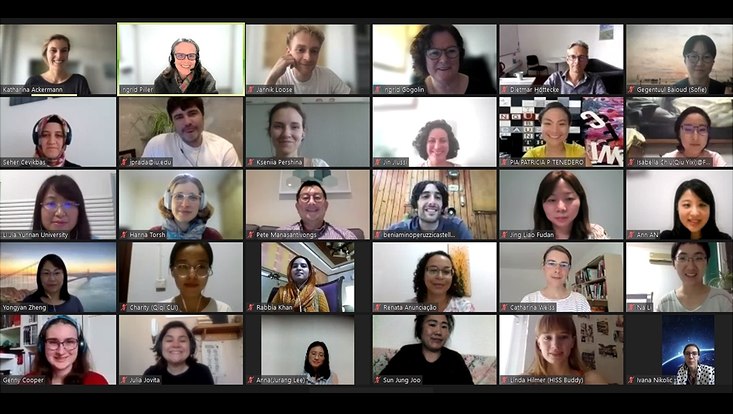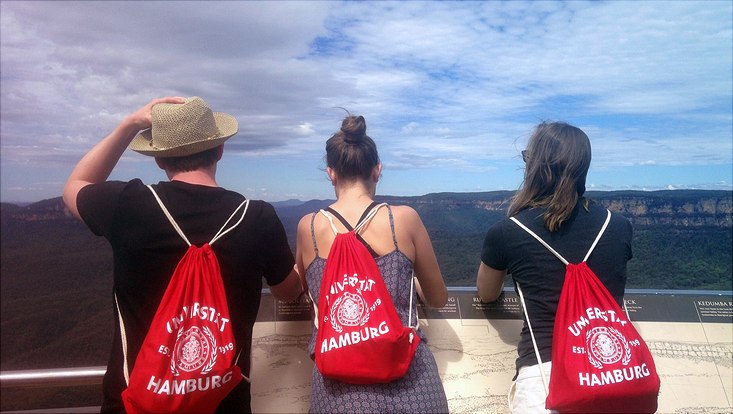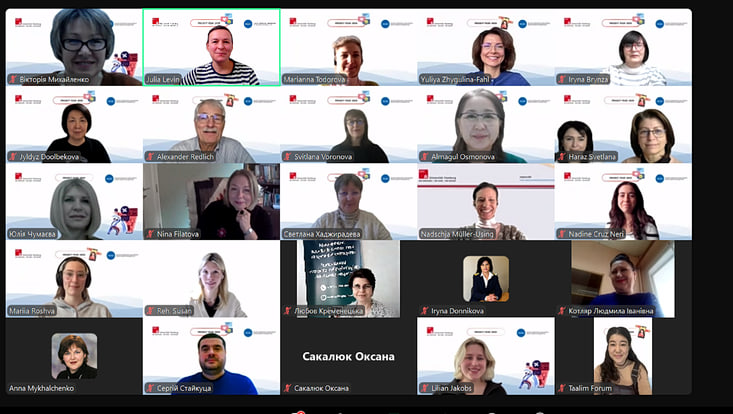HISS 2021: Language Diversity, Education, and Social Participation
17. August 2021, von Jannik Loose

Foto: Ingrid Piller
21 Master and PhD students from 9 countries speaking 4 to 9 languages each met lecturers from around the globe at Hamburg International Summer School 2021 “Language Diversity, Education, and Social Participation."
Did you know how train stations in Belgrade, Sydney and Leipzig differ in their language diversity? Did you know that 140 ethne live in Kazakhstan and how their school system is handling language diversity? What about educational policies on learning foreign languages in China? What is it like to use different national languages, language varieties, dialects and modalities in one family?
In cooperation with Macquarie University, Sydney, and Fudan University, Shanghai, Universität Hamburg organized the Hamburg International Summer School (HISS) 2021 “Language Diversity, Education, and Social Participation” from 5th to 31st July. Due to increasing social differentiation, economic globalization, and new levels of worldwide interconnectedness through digital media, linguistic diversity has become a defining factor of modern, multicultural societies. HISS provided a unique opportunity to engage with the topic of language diversity in an academic environment. Together with university lecturers from Sydney, Shanghai, Indianapolis, Brussels, Strasbourg and Hamburg participants analyzed and contextualized their own experiences on language diversity. In various forms of recorded online lectures, synchronous online classes, and regular get-togethers, participants and experts discussed on key subjects concerning societal and individual multilingualism, research regarding language development and language education in multilingual contexts, linguistic diversity in formal and informal institutional contexts and language learning motivation in East Asia.
Covid-19 made it impossible for us to meet in person. However, this world-wide crisis suited as a perfect case for group discussions on how different countries handle multilingual health communication (see video). Guess what; all participants conclude: Limited multilingual information on COVID-19 vaccination still seems to be a major obstacle for many people to get vaccinated.
We would have loved to welcome everyone to Hamburg. However, the multilingual and international nature of the group, the course-organization with close interactions, as well as sports and yoga sessions created a productive and enjoyable experience for both participants and lecturers.
A reunion will be planned for sure!
“The opportunity to work in such diverse groups for the assignments, it was really fun and interesting to get some insight on their language and cultural habits.” (participant)
“It was very well organized. I liked that the sessions were stretched out over the whole month so that we didn't suffer from screen fatigue too much.” (participant)
“It was wonderful to get to know researchers from all over the world that focus on different aspects of multilingualism.” (participant)
“I am very impressed of the creativity of students' group works - congratulations!” (lecturer)
„It was an exciting group of very committed students - I really appreciated your very inspiring contributions, giving us access to your experiences and knowledge.“ (lecturer)


